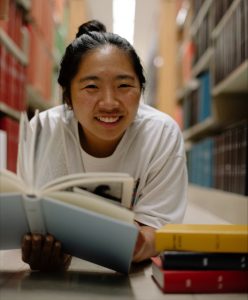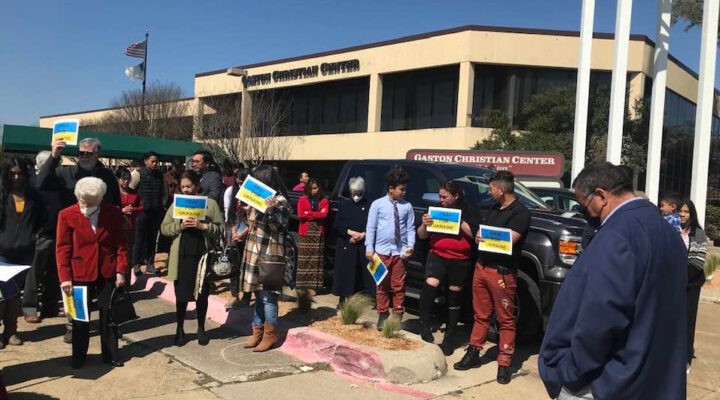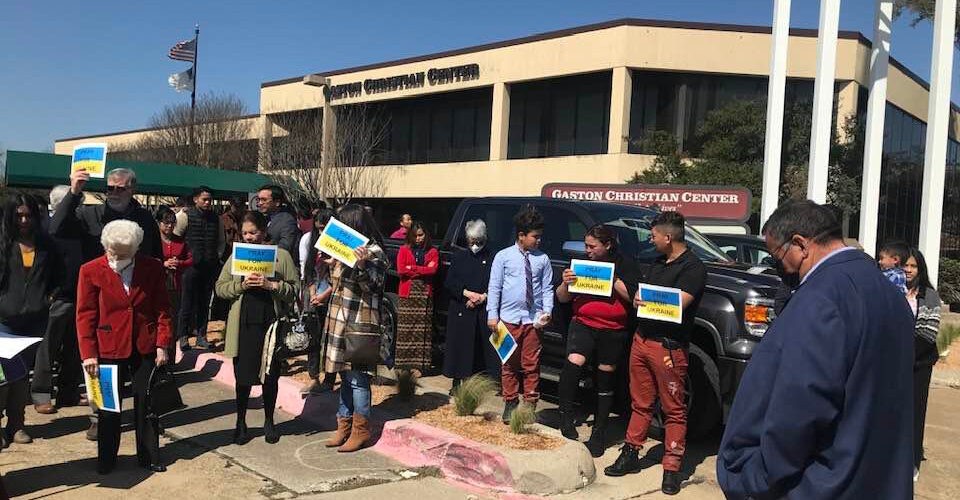Many American societies are beginning to be understood as “post-Christian.” Churches are hemorrhaging masses of disillusioned congregants as Christian cultural norms are losing their grip on public discourse. Even so, there has been a new Christian movement unsuspectingly burgeoning on the margins of this Western world: the diasporic immigrant church.

Hayoung Park
It has been well-established for the last half century that the Christian world is shifting away from the Global North to almost 77% of Christians being located in the Global South by 2050. Moreover, the recent decades of North American history have been marked by significant influxes of international migrants related to events such as the 1965 U.S. Immigration Act or heightened violence in the Middle East. Other studies show 86% of the immigrant population in North America are likely either to be Christians or become Christians. As a result, it stands to reason the American church is not dying; rather, diasporic immigrants are bringing church to our continent, representing the de-Europeanization of not only our culture but also our spirituality.
During this demographic shift, the Western church not only will need to learn to pastorally care for these diasporic immigrants among them, but will find the theologies and spiritual gifts of immigrants necessary to sustain and revive Western Christianity. This will mean reordering our liturgies, ministries and structures against the grain of nationalist, xenophobic mindsets that tend to view international immigrants as exotic monoliths in need of assimilation and evangelism.
Immigrants settling in the West often carry stories of insurmountable loss and resilience. Countless immigrants come to America aiming to escape persecution and poverty. They continue to experience loss in two ways: external stress (visa documentation, workplace discrimination) and cultural loneliness rising from a pervading sense that one’s own cultural identity is unlike the surrounding culture.
These immigrant experiences are not exclusive to diasporic migrants in the US. In fact, the Bible is abundant with stories of migrants and cultural exiles. God, in Exodus 2, hears the groanings of Israel slaving under the bondage of Egypt as foreigners. Through Moses, a Hebrew by birth who was assimilated to Egyptian royalty, the Lord God liberated the Israelites. Soon after, we learn in Leviticus these liberated people were instructed by God to care for the foreigner as one might care for their own people.
“Why might it have been important that God was incarnated as a refugee and a cultural minority living under an empire?”
Almost all the prophetic texts written during the Babylonian Exile and afterward are understood to be written by and to people displaced from their ancestors’ land. Centuries later, Jesus is born to Mary and Joseph, two Jews living under the looming Roman occupation, and they later seek refuge in Egypt from King Herod. Christ experienced profound cultural displacement long before his adult ministry even started.
Why might it have been important that God was incarnated as a refugee and a cultural minority living under an empire? Perhaps it was to embolden the apostles to come who would build the early church and write epistles under the threat of societal marginalization. Perhaps it was to demonstrate to the first Christians, Jews, and Gentiles alike, that the kingdom of God no longer would be defined by ethnicity but by the baptism of any who claimed Jesus as Lord.
This is why modern diasporic immigrants bear special witness to the gospel. Their embodied experience of social marginalization, proximity to suffering and cultural fluidity predispose them to receive the Bible and the story of God as it was intended to be received — as a story told to a people who exchanged their former ways for a new life that will inevitably also cause them trouble and rejection.
Diasporic immigrants in our churches are in dire need of both pastoral care and opportunity for the Holy Spirit to transform their isolation and homesickness into sermons and songs of praise. Our Western churches dilapidated by cultural homogeneity and nationalism are in dire need of the prophetic resilience of a people who are not bound to a singular culture.
To the church in America, will you join the Lord in the cause of uplifting diasporic immigrants among us? The Lord already has been fortifying the ranks of believers in the Korean church that gathers in another church’s building, in the international student campus ministry, and in the churches along the U.S.-Mexico border.
“Here are a few ways you can begin to partner with immigrants among us.”
Here are a few ways you can begin to partner with immigrants among us:
Expand your definitions of family. Immigrants often may have practical needs that are difficult to meet on our own, especially if we have recently immigrated, but it can be fatiguing and awkward to constantly ask for help. If you want to care for immigrants in your community, enfold us into the natural rhythms of your own family in order that mutual interdependence might blossom organically.
Pray for our countries. Although we are miles away from our home countries, the unrest and injustices back home may still affect us profoundly. When you pray for my country, it means you are stepping into my reality of homesickness and diaspora, however burdensome it may be.
Worship like us. Invite us to help negotiate ways in which your church might restructure worship gatherings to include hymns, prayers and practices from our home countries. Read Scripture in the languages spoken by your congregation. Preach sermons that incorporate immigrant theologians or, better yet, invite us to share and preach our expansive stories.
Support local immigrant churches. Immigrant churches often are under-resourced, and their pastors often are underpaid or bivocational, meaning they always could use a little extra money or a few more volunteers for their ministries. Brainstorm ways for your local church to partner with an immigrant church in your city, whether that is through sharing finances or hosting monthly gatherings together.
Hayoung Park is pursuing a master of divinity degree and a master of social work degree at Baylor University in Waco, Texas. Rooted in her own experiences as an Asian immigrant woman in the church, she is passionate about bridging theology and social justice in compassionate ways.


